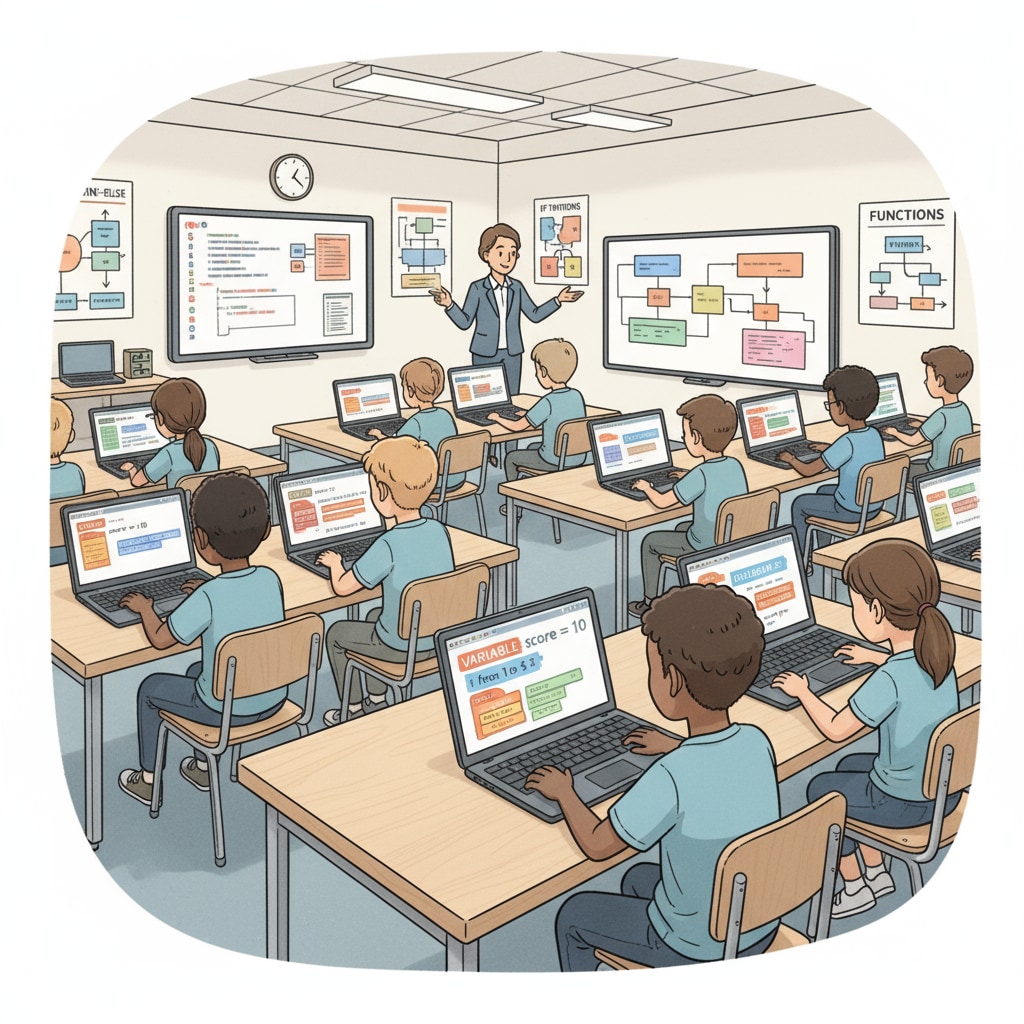Software engineering, certifications, and resumes are crucial aspects for students aspiring to enter the field of software engineering. K12 programming education plays a significant role in laying a solid foundation for these future software engineers.

In this article, we will explore the importance of K12 programming education, analyze the current situation and challenges, and provide practical suggestions for home-school collaboration in cultivating students’ programming literacy.
The Significance of K12 Programming Education
K12 programming education is not just about teaching coding skills. It nurtures problem-solving abilities, logical thinking, and creativity in students. According to Wikipedia’s page on Software Engineering, software engineers need strong analytical skills, which can be developed from an early age through programming education. For example, when students learn to code simple games during K12, they are actually learning to break down complex problems into smaller, manageable steps. This early exposure helps them better understand the software development lifecycle later on.

Current Status and Challenges of K12 Programming Education
Although K12 programming education is gaining more attention, it still faces several challenges. One major issue is the lack of standardized curriculum. Different schools may teach different programming languages and concepts at varying levels. In addition, many educators may not have sufficient training in programming. As a result, the quality of teaching can vary greatly. Another challenge is the limited resources available in some schools, such as outdated hardware and software. This can hinder students’ learning experience. According to Britannica’s article on Computer Programming, a comprehensive and well-structured education system is essential for effective programming learning.
Despite these challenges, there are also positive aspects. Some schools are leading the way in implementing innovative programming courses. These courses often incorporate real-world projects, making learning more engaging and practical for students.
Home-School Collaboration for Cultivating Programming Literacy
Home-school collaboration can significantly enhance students’ programming literacy. Parents can encourage their children’s interest in programming by providing access to online resources, such as coding platforms and educational videos. At the same time, schools should offer more support to parents, such as workshops on how to guide children in programming. For example, schools can organize parent-teacher meetings specifically focused on programming education, sharing tips and strategies. This joint effort can help students build a stronger foundation in programming, which will be beneficial for their future software engineering careers, certifications, and resumes.
Readability guidance: This article has used short paragraphs to make the content more digestible. Each H2 section provides key points related to K12 programming education for software engineering. Transition words like ‘although’, ‘in addition’, and ‘for example’ have been used to improve the flow. The passive语态 has been minimized, and the focus is on presenting practical information for students and educators.


